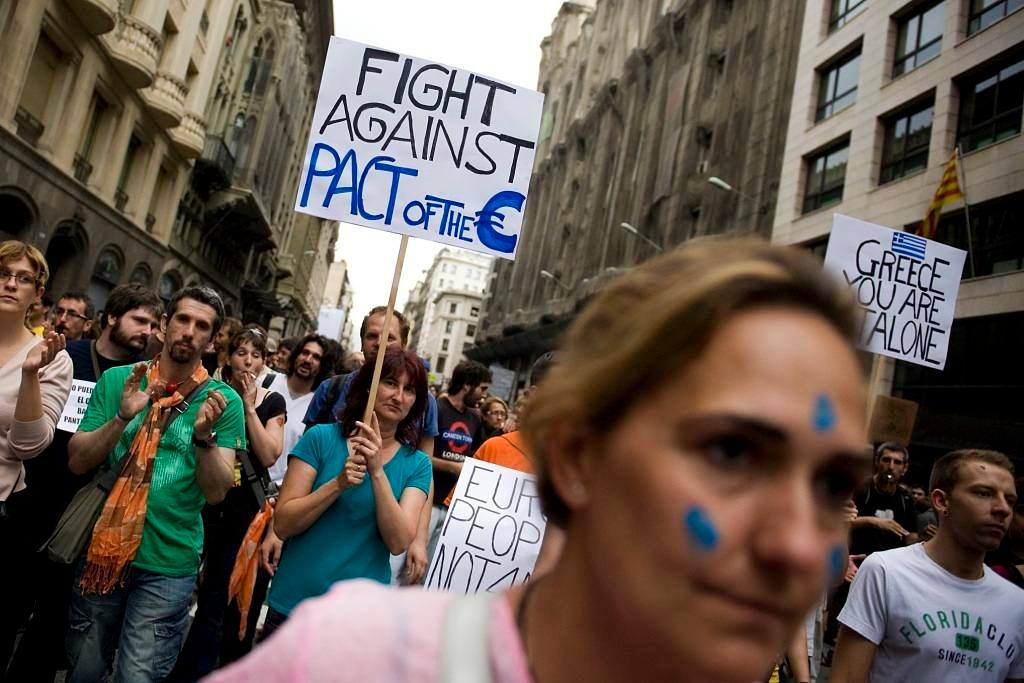Tens of thousands of Spaniards protest, with a decidedly anti-Brussels tone (VIDEO)
Demonstrators hold up banners and shout slogans during a protest against the Euro zone leaders’s agreed ‘Pact For The Euro’ on June 19, 2011 in Barcelona, Spain.
More than 100,000 Spaniards demonstrated around the country on Sunday to drive home anger over high unemployment, bleak economic prospects and the handling of the financial crisis in their country, by politicians they see as inept, according to the Associated Press.
Rallies were held in about 60 cities. Police and officials put the number of demonstrators, known as “los indignados” or “the indignant ones,” at nearly 40,000 in Madrid, 20,000 in Barcelona, 18,000 in Granada, and several thousand in Valencia, Seville and Bilbao, Newsday reported.
The protests, part of a wave of demonstrations that began on May 15, were once again focused on Spain's high unemployment rate and on the government's economic austerity measures. But on Sunday, the protests had a decidedly anti-Brussels tone, with anger directed at measures backed by the European Commission and the northern members of the euro zone, the Financial Times reported.
To comply with the euro stability pact, an agreement among euro-zone politicians to stimulate competitiveness, political leaders in Spain have already implemented controversial austerity measures, hoping to avoid the debt crisis that has gripped Ireland, Portugal and Greece, Deutsche Welle said. Prime Minister Jose Luis Rodriguez Zapatero's government has cut government spending, frozen pensions, raised the retirement age and made it easier for companies to lay people off, the Associated Press reported.
Spain currently suffers from 21 percent unemployment, with more than 40 percent unemployment among those younger than 25. Many Spanish demonstrators are worried that efforts to stabilize the euro would lead to more austerity measures across the EU, which would hurt them even more financially, CNN reported.
After three years of economic recession and stagnation, there is widespread discontent about the severe measures, with many people saying they are bearing the brunt of the fallout from a financial crisis that was created by governments, big banks and wealthy developers, the Financial Times said.
